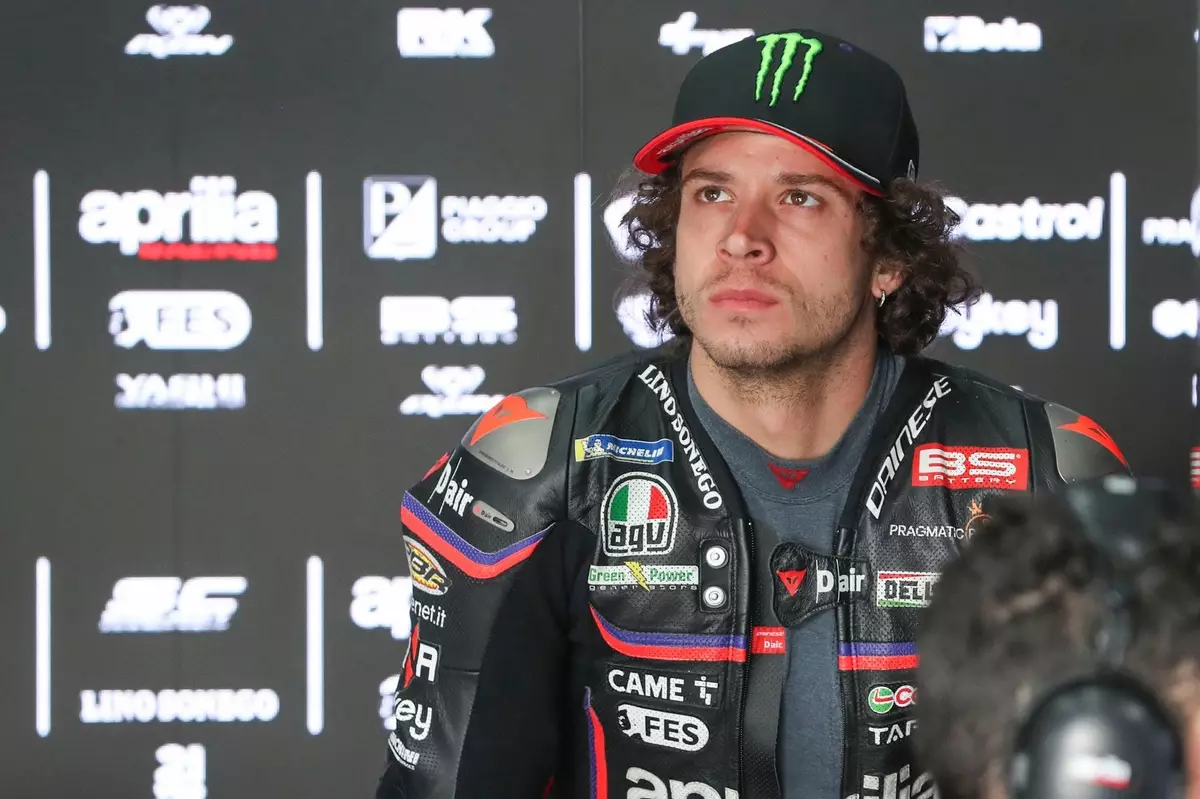In the high-octane world of MotoGP, few names resonate as powerfully as Valentino Rossi. The legendary racer, a seven-time world champion, has transitioned from the racetrack to the paddock as a team principal and mentor. His profound impact is particularly evident through his former protege, Marco Bezzecchi, who continues to flourish despite moving to the Aprilia team for the 2025 season. The relationship between Rossi and Bezzecchi exemplifies how mentorship can transcend team boundaries and shape a rider’s career using a mix of personal guidance and data-driven strategies.
The Intricate Dynamics of Mentorship
Bezzecchi recently shared insights into his ongoing relationship with Rossi, emphasizing that data-driven advice forms the essence of their mentorship. At the recent Spanish Grand Prix, he affirmed that their connection remains strong, despite his shift away from Rossi’s VR46 Ducati team. This continued support highlights Rossi’s unwavering commitment to his protégés even as they navigate new challenges within different teams. However, Bezzecchi’s hesitance to divulge specifics about data accessibility reflects a broader trend within the sport, where proprietary information is fiercely guarded by teams.
Aprilia’s official stance is that external parties have no direct access to critical rider analytics, ensuring that competitive edges are maintained. This makes Rossi’s role even more intriguing; he possesses a wealth of racing experience and technical knowledge, yet operates within a framework of limited data access. It raises questions about the type and extent of guidance he can offer Bezzecchi, particularly in the context of a highly competitive MotoGP landscape.
The Paddock Presence of a Legend
Although Rossi has stepped back from racing, his presence at MotoGP events remains magnetic. Fans flock to see him, and riders often speak glowingly of his insights and guidance. Yet, his appearances in team garages have dwindled. Racing at the VR46 Ranch and engaging in car racing keeps him connected to the sport, but it also raises the question: how significantly can he influence his riders from a distance? As Bezzecchi transitions to a different team, one can wonder if Rossi’s occasional visits will still carry weight or if his advisories continue to resonate with the same impact.
Rossi’s analytics expertise is a double-edged sword in the current competitive milieu. With Ducati’s open-data policy granting limited access to telemetry across teams, questions linger about Rossi’s ability to remain informed about his riders’ performances with rival squads like Honda and Aprilia. Insight into Bezzecchi’s data could provide invaluable tools for improvement, but without direct access, his mentorship relies more on instinct and experience rather than concrete performance metrics.
The Academy’s Evolving Landscape
As one of the youngest talents nurtured at the VR46 Riders Academy, Bezzecchi represents a new wave of riders groomed under Rossi’s tutelage. The academy, which has produced other prominent names like Franco Morbidelli, Francesco Bagnaia, and Luca Marini, showcases Rossi’s success in cultivating talent. Yet, as these riders find themselves scattered across various teams, the instructional dynamics change. Rossi’s ability to support them, albeit from afar, speaks volumes about the foundational principles he instills in his riders—principles that enable them to navigate the complexities of competition independently.
The fragmenting of the academy’s riders—a mix of past and present VR46 team members—could be seen as a dilution of Rossi’s influence. However, it may also serve to strengthen the riders’ independence and adaptability, skills critical for success in a fast-evolving sport. Rossi’s mentorship now extends into an era where his charges must rely more on their decision-making rather than waiting for the guru’s direct intervention.
While Rossi remains a pivotal figure in the paddock, the narrative of his influence underscores the evolving relationship between mentorship, data, and competitive boundaries. As Bezzecchi and his contemporaries progress in their careers, the Ruiz effect continues to weave through avenues previously uncharted, garnering new insights and experiences that will likely influence the future landscape of MotoGP. Each race where Rossi is present may be an indicator of ongoing insights shared, affirming that his legacy, much like MotoGP itself, is a tapestry of continuous learning and adaptation.


Leave a Reply